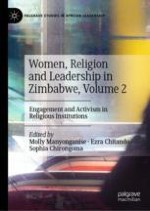Zimbabwe has invested in women’s emancipation and leadership while articulating a strong Pan-Africanist ideology, providing a valuable entry point into understanding the dynamics relating to women’s leadership in Africa. It is also characterised by radical religious pluralism, thereby facilitating an appreciation of the impact of religion on women’s leadership in Africa more generally.
This volume reflects on the role of Zimbabwean women in religio-cultural leadership, with a specific focus on roles within religious organizations. It begins by examining Zimbabwean church women’s leadership roles in long established faith communities. The chapters then hone in on the emergence of churches or ministries founded by women in Zimbabwe, starting from the pre-colonial era and advancing through the last forty years of independence.
Hence, the book offers a comprehensive assessment of the challenges and opportunities women in leadership face in religious institutions in the country, before exploring the impact of the pandemic on the ability of women to lead. It will make a major contribution to the advancement of scholarship of gender and leadership in emerging markets.
